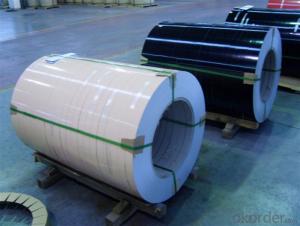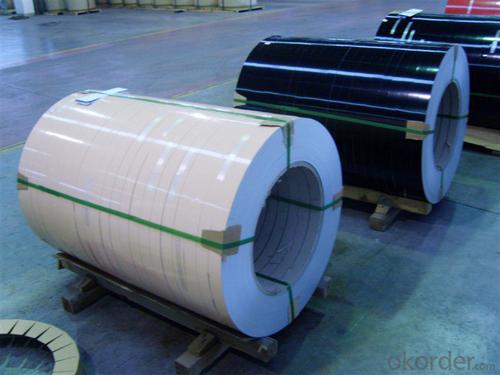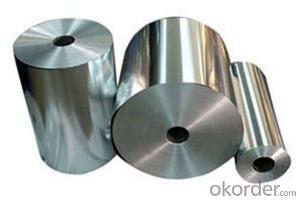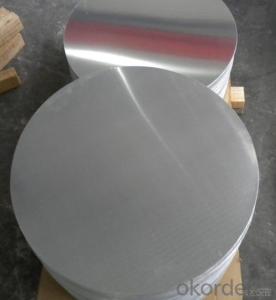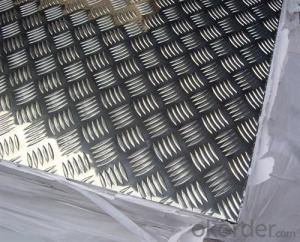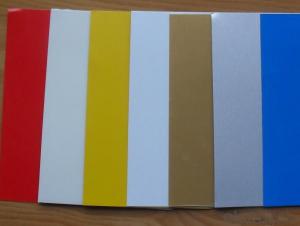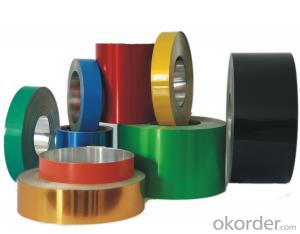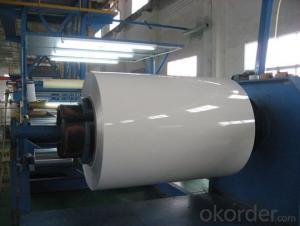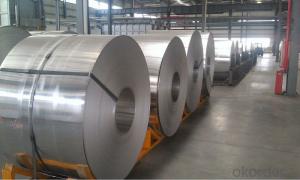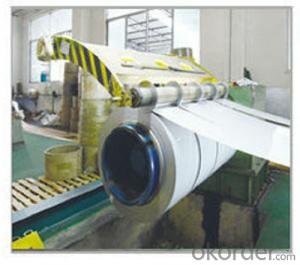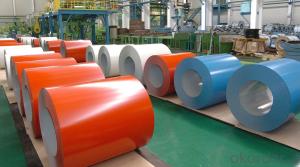RAL 8003 PE 18 Micros Coated Aluminum Coil Florida
- Loading Port:
- Shanghai
- Payment Terms:
- TT OR LC
- Min Order Qty:
- 2 m.t.
- Supply Capability:
- 50000 m.t./month
OKorder Service Pledge
OKorder Financial Service
You Might Also Like
Specification
Description
Standard | GB/T3190-2008, GB/T3880-2006, ASTM B209, JIS H4000-2006 .etc |
Thickness | 0.2-8.0 mm aluminium 7075 t6 |
Width | 1250mm 1000mm 1219mm or as your requirements |
MOQ | 2 Ton |
Package | Standard export package, by wooden box or as required. |
Application | 1060 is widely used in the strength requirements of the product. Products commonly used in signs, billboards, building exterior decoration, bus body, high factory wall decoration, kitchen sink, lamp, fan, electronic components, chemical apparatus, sheet processing, deep drawing or spinning hollow ware, welding parts, heat exchangers, Bell surface and plate, plates, kitchen utensils, accessories, safety equipment and other. |
Technical data
1060 aluminum Chemical composition | ||||||||
Al | V | Cu | Mg | Zn | Mn | Ti | Fe | |
99.6 | 0.05 | 0.05 | 0.03 | 0.05 | 0.03 | 0.03 | 0.35 | |
1060 aluminum Mechanical properties | ||||||||
Tensile strength(σb (MPa) | elongationδ10 (%) | |||||||
110-136 | 3%-5% | |||||||
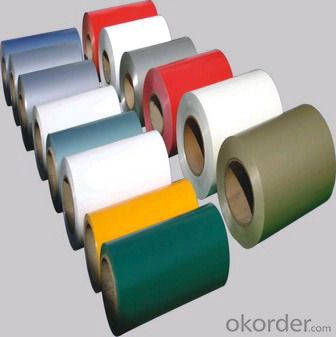
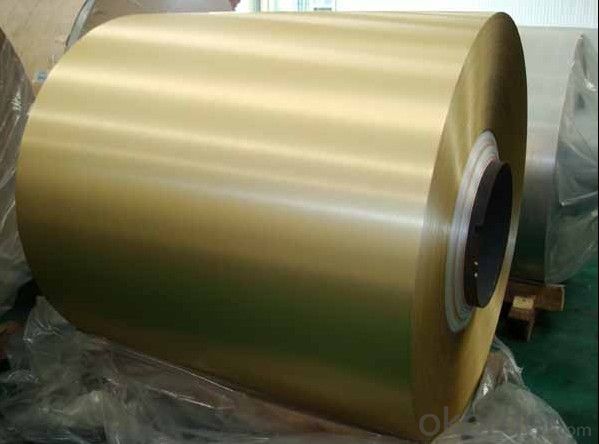
PE and PVDF Painting
Polyester Coatings (PE)
PE (polyester) coatings exhibit an excellent combination of hardness, flexibility, flow, appearance, and superior resistance to dirt retention in indoor and outdoor applications. These coatings are highly resistant to abrasion, metal marking, staining, and marring, and require minimal maintenance. Glazetech uses polyester paints which provide excellent colour and gloss retention properties.
Polyvinylidene Fluoride Coatings (PVDF)
PVDF (polyvinylidene fluoride) is a chemical resistant thick film barrier coating commonly used in architectural applications where both excellent appearance and substrate protection must be maintained over a long period of time. This coating is unaffected by most chemicals and solvents and has excellent wear and abrasion resistance. PVDF also has a high dielectric strength, excellent resistance to weathering and the ability to self extinguish.
- Q: How are aluminum coils tested for mechanical properties?
- To evaluate the mechanical properties of aluminum coils, a range of standardized tests are conducted. These tests assess factors such as strength, ductility, and other relevant properties. Tensile testing, hardness testing, and bend testing are among the common methods used. Tensile testing is widely employed to analyze the mechanical properties of aluminum coils. This method involves subjecting a small portion of the coil to a pulling force until it fractures. Throughout the test, the force and elongation are measured to determine the coil's ultimate tensile strength, yield strength, and elongation at break. Another crucial evaluation method is hardness testing, which measures the coil's resistance to indentation or scratching. This test provides insights into the coil's ability to withstand external forces. Different hardness testing techniques, such as Brinell, Rockwell, and Vickers, can be utilized based on specific requirements. Bend testing is performed to evaluate the coil's ductility and formability. This process entails bending the coil to a specific angle or radius and inspecting it for any indications of cracking, wrinkling, or defects. Bend testing helps determine the coil's ability to undergo forming processes without failure. In addition to these standard tests, specialized testing methods can be employed to assess mechanical properties like fatigue resistance, impact resistance, and fracture toughness. These tests offer valuable information about the performance of the aluminum coil and ensure that it meets the required specifications and standards. In conclusion, a combination of tests is utilized to comprehensively evaluate the mechanical properties of aluminum coils, guaranteeing that they possess the necessary strength, ductility, and other properties essential for their intended applications.
- Q: What are the potential applications of anodized aluminum coils?
- Anodized aluminum coils possess a multitude of possible uses across various industries. The construction industry heavily relies on anodized aluminum coils, utilizing them for cladding and façade systems. The anodized coating enhances the aluminum's durability, weather resistance, and aesthetic appeal. Its ability to withstand harsh environmental conditions, such as UV radiation, saltwater exposure, and extreme temperatures, makes it an optimal choice for building exteriors. The automotive industry also benefits significantly from anodized aluminum coils. The anodized coating adds a protective layer that enhances the aluminum's corrosion resistance, making it suitable for a wide range of automotive components. These coils can be used for trim, body panels, window frames, and other parts that require both durability and an attractive appearance. Consumer electronics manufacturing also utilizes anodized aluminum coils due to their scratch resistance, electrical insulation, and heat dissipation properties. The anodized coating makes it suitable for electronic enclosures, heat sinks, and connectors. Moreover, the ability to achieve vibrant colors through anodization allows for customizable designs that appeal to consumers. The heating, ventilation, and air conditioning (HVAC) industry extensively uses anodized aluminum coils due to their lightweight nature and excellent heat conductivity. Heat exchangers, air conditioning coils, and evaporator coils commonly utilize these coils. The anodized coating provides protection against corrosion caused by moisture and other environmental factors, ensuring the longevity and efficiency of these HVAC components. Furthermore, the food and beverage industry finds applications for anodized aluminum coils due to the hygienic surface provided by the anodized coating. It is easy to clean and resistant to bacterial growth, making it suitable for food processing equipment, storage tanks, and packaging materials. This ensures the safety and quality of the products. In conclusion, anodized aluminum coils possess vast and diverse potential applications, ranging from construction and automotive to electronics and food processing. The unique combination of durability, corrosion resistance, heat dissipation, and aesthetic appeal makes anodized aluminum coils a versatile material that finds use in numerous industries.
- Q: Are there any health risks associated with aluminum coils?
- Yes, there are some health risks associated with aluminum coils. When aluminum coils are heated, they can release small amounts of aluminum particles into the air, which may be inhaled. Prolonged exposure to high levels of aluminum particles may potentially lead to respiratory issues and lung damage. Additionally, there is a concern that aluminum particles could contaminate food if the coil is used in cooking or food storage. However, the health risks are generally considered to be low if proper ventilation is maintained, and aluminum coils are used within recommended guidelines.
- Q: What’s the production standard of aluminum coil?
- GB/T3880-2006 mechanical standard GB/T3190-1996 chemical standard
- Q: How much is the 25mm aluminum coil at current market?
- You must mean 25-wide aluminum coil. The price consists of the aluminum ingot price and processing charges. For example, if the processing price is 4500 yuan, it is relatively cheap. 25mm-wide aluminum coil is very narrow, so it will be much complicated to strip.
- Q: This question asks about the economic impact of aluminum coils, which are a key material in various industries.
- <p>Aluminum coils significantly impact the economy by driving growth in various sectors. They are vital in construction, automotive, aerospace, and packaging industries due to their lightweight, durability, and recyclability. The aluminum coil market stimulates manufacturing, job creation, and technological advancements. Additionally, their high demand supports the growth of the aluminum industry, influencing trade and contributing to GDP. The recycling of aluminum coils also reduces energy consumption and environmental impact, further benefiting the economy by promoting sustainable practices.</p>
- Q: how tall is a crushed aluminium soda can compared to a non crushed one.i need measurements in centimeters please.ALSO!! AN IMAGE that actually has both of the two with the measurements would be SUPER HELPFUL
- I don't understand why you can't just measure a can, then crush it and measure it again. And with the number of cellphones kids have today, every one can take a picture. Why do we need to do this for you?
- Q: Are aluminum coils suitable for weather-resistant applications?
- Yes, aluminum coils are suitable for weather-resistant applications. Aluminum is known for its excellent corrosion resistance, making it a popular choice for outdoor and weather-exposed applications. The metal forms a protective oxide layer on its surface when exposed to air, which acts as a barrier against moisture, humidity, and other weather elements. This oxide layer helps prevent the metal from rusting or deteriorating over time. Additionally, aluminum's lightweight nature and high strength-to-weight ratio make it a practical choice for various weather-resistant applications, such as roofing, gutters, siding, and outdoor signage.
- Q: What is the cost involved in the production of an aluminum coil?
- <p>The cost to produce an aluminum coil varies significantly based on several factors. These include the cost of raw materials, energy costs for melting and rolling, labor, and overhead expenses. Additionally, the price of aluminum on the commodities market directly impacts the cost. As of recent market trends, the cost can range from a few hundred to several thousand dollars per ton, depending on the specific alloy and thickness of the coil. It's essential to consider the current market prices for aluminum and the efficiency of the production process when calculating the cost to produce an aluminum coil.</p>
- Q: What is the difference between hot rolled and cold rolled aluminum coils?
- The main difference between hot rolled and cold rolled aluminum coils lies in their production process and the resulting properties of the final product. Hot rolled aluminum coils are produced by heating aluminum ingots above their recrystallization temperature, typically around 450°C (842°F), and then rolling them through a series of rollers to reduce their thickness and shape them into coils. This process allows for quick production and the ability to produce larger coils. However, hot rolling can lead to a less precise and less smooth surface finish, with potential for surface defects and oxidation. On the other hand, cold rolled aluminum coils are produced by further processing hot rolled coils. The hot rolled coils are first pickled, or chemically treated, to remove any mill scale or impurities. They are then cold rolled, which involves passing them through a series of rollers at room temperature. This process results in a more precise and smoother surface finish, with excellent dimensional accuracy and tighter tolerances. Cold rolling also increases the strength and hardness of the aluminum, making it more suitable for certain applications. In terms of properties, hot rolled aluminum coils generally have lower strength and hardness compared to cold rolled coils. They also have a higher likelihood of surface defects and oxidation due to the high temperature involved in the production process. Cold rolled aluminum coils, on the other hand, exhibit higher strength and hardness, as well as better surface finish and dimensional accuracy. These properties make cold rolled aluminum coils more suitable for applications that require higher quality and precision. Overall, the choice between hot rolled and cold rolled aluminum coils depends on the specific requirements of the end-use application. Hot rolled coils are often used in applications where speed and cost-effectiveness are prioritized, while cold rolled coils are preferred for applications that demand higher quality, precision, and strength.
Send your message to us
RAL 8003 PE 18 Micros Coated Aluminum Coil Florida
- Loading Port:
- Shanghai
- Payment Terms:
- TT OR LC
- Min Order Qty:
- 2 m.t.
- Supply Capability:
- 50000 m.t./month
OKorder Service Pledge
OKorder Financial Service
Similar products
Hot products
Hot Searches
Related keywords
